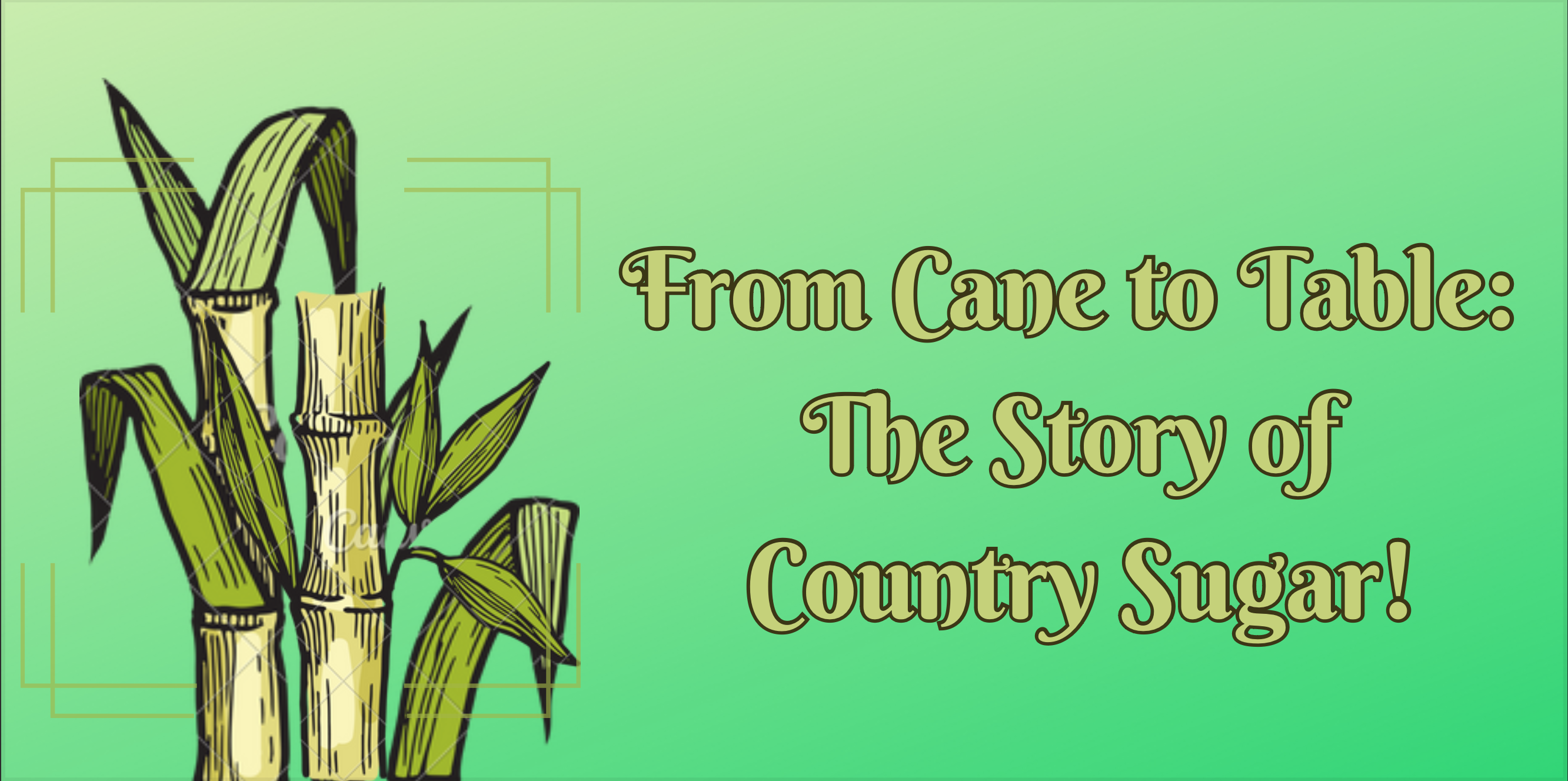
From Cane to Table: The Story of Country Sugar
Country sugar production, the history of cane sugar, and the benefits of country sugar are fascinating topics for anyone who enjoys cooking or is interested in where their food comes from. Sugar is ubiquitous in our diets, yet few know much about its origins beyond the supermarket.
This post will explore the rich history of cane sugar and the sustainable production methods used to make country sugar. We will also examine the nutritional benefits of this natural sweetener and provide some tips on incorporating it into your daily diet.
History of cane sugar
Country sugar production, the history of cane sugar, and the benefits of country sugar are all interconnected, and understanding their evolution is crucial to appreciate this essential ingredient. The history of cane sugar is complex, with roots that trace back thousands of years to ancient India and China. However, it was the Arab empire that first began producing sugar commercially, leading to its spread across the world.
The discovery of America played a pivotal role in the history of sugar, leading to large-scale plantations in the Caribbean and South America. These plantations relied heavily on slave labour, making the sugar industry one of history’s most infamous examples of human exploitation. Despite this dark past, the demand for sugar continued to soar, and it eventually became the most valuable commodity in the world.
Many consumers are turning to Country sugar production methods, prioritising sustainability and ethical practices. These natural sweeteners offer several benefits over refined sugar, including a lower glycemic index and higher nutrient content. We can enjoy this essential ingredient by opting for country sugar while supporting more ethical and environmentally conscious production methods.
Country sugar production
Today, most of the world’s sugar is produced from sugar beet. However, in countries like India, China, and Brazil, sugarcane is still the primary source of sugar. Country sugar production involves extracting juice from the sugarcane plant, which is then boiled and evaporated to form crystals. Making country sugar is often done on a smaller scale and involves minimal processing, making it a healthier alternative to refined white sugar.
The production of country sugar is an environmentally sustainable process. Farmers grow sugarcane without harmful chemicals or pesticides, which helps preserve the natural ecosystem. The leftover sugarcane pulp is often used as animal feed or an energy source, reducing waste.
Benefits of country sugar
Country sugar is a healthier alternative to refined white sugar. Unlike white sugar, country sugar is less processed and retains more of its natural nutrients. It contains essential minerals like calcium, magnesium, and potassium, which benefit our health. These minerals help to regulate our blood pressure, support bone health, and maintain a healthy heart.
Country sugar also has a lower glycemic index than white sugar, meaning it doesn’t cause a sudden spike in blood sugar levels. This makes it a good option for people with diabetes or those looking to control their blood sugar levels.
Another benefit of country sugar is its distinct flavour and aroma, adding depth to baked goods, sauces, and beverages. It is often used in traditional recipes to enhance the taste and texture of dishes.
Cooking with Country Sugar
Country sugar is versatile and can be used in a variety of recipes. It is an excellent substitute for white sugar in recipes that call for brown sugar, as it has a similar flavour and texture. Country sugar can also be used to sweeten tea or coffee, as it dissolves quickly and adds a subtle sweetness.
When baking with country sugar, it’s essential to remember that it has a coarser texture than white sugar. This means it may not dissolve completely in cold liquids and must be blended with a liquid or melted before adding it to the recipe.
Conclusion
In conclusion, country sugar has a rich history and sustainable production process, making it a healthier alternative to refined white sugar. Its natural nutrient content and lower glycemic index make it a perfect addition to a healthy diet. So, next time you reach for that sugar jar, consider switching to country sugar and reap the benefits. With its unique flavour and aroma, you may discover a new world of culinary possibilities.